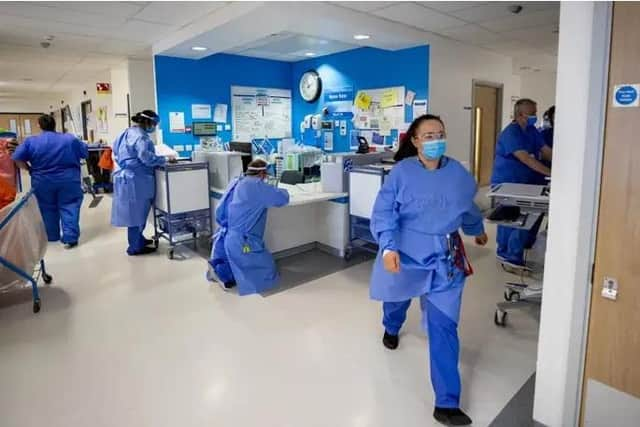Hundreds of patients in Hertfordshire waiting more than a year for hospital treatment
and live on Freeview channel 276
Latest waiting list data shows that hundreds of people have now been waiting for more than a year for hospital treatment in Hertfordshire.
According to national targets, at least 92 per cent of patients should receive treatment within 18 weeks of a referral. And no patient should be waiting for 52 weeks or longer.
Advertisement
Hide AdAdvertisement
Hide AdBut latest data – presented to a joint meeting of the East and North Herts, Herts Valleys and West Essex Clinical Commissioning Groups (CCGs) – shows that in August there were 3,710 patients who have been waiting longer than a year.


Of those, 2,910 are waiting for treatment at the East and North Herts NHS Trust – where 57 patients have been waiting for two years.
And 800 are waiting for treatment at the West Herts Hospitals Trust – where 34 patients have been waiting for two years.
A further 1,394 patients have been waiting for treatment at the Princess Alexandra Hospital for 52 weeks or longer.
Advertisement
Hide AdAdvertisement
Hide AdMeanwhile, medical chiefs from the Hertfordshire and West Essex Integrated Care System continue to highlight the steps being taken locally – such as catch-up clinics and extra operating sessions.
And they stress that if any patient has symptoms that have changed they should contact their GP or hospital department.
Dr Rachel Joyce, director of clinical and professional services for the Hertfordshire and West Essex Integrated Care System said: “Our services remain open and we continue to prioritise patients with the most urgent clinical needs and are using extra catch-up clinics and operating sessions in the evening, at weekends and at local independent sector hospitals to do so.
“If any patient feels their symptoms have changed, or they have new concerns, they should contact their GP practice or the department they are receiving treatment from so our clinicians can ensure they continue to be fully supported.”
